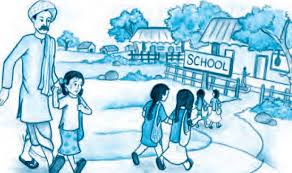Aristotle's Theory of Tragedy | Critical Theory
Aistotle's Theory of Tragedy
Q. Discuss Aristotle's concept of Tragedy.
Q. What is Aristotle's Theory of Tragedy?
Q. Discuss six elements of Tragedy as per Aristotle's poetics.
Contents :-
🏛️ Introduction : Aristotle & Tragedy :-
| ARISTOTLE | |
|---|---|
|
Profile |
|
| Born | 384 BC, Greece |
| Died | 382 BC, Greece |
| Profession | Philosopher, First scientist |
| Founded | Lyceum |
| Nationality | Greek |
| Education | Platonic Academy |
| Influences | Socrates, Plato, Pythagoras, Epicurus etc. |
| Students | Alexander, Theophrastus |
| Influenced | Kant, Descartes, Aquinas, Rousseau etc. |
| Works | Nicomachean ethics, poetics, politics, metaphysics |
📖 Aristotle's theory of Tragedy:-
The term Tragedy in drama refers to a sudden, instant and unanticipated emotional climax that causes enormous/immense feeling of great sorrow, pity, laughter or any other intense/major/extreme change in emotion, which results into restoration, renewal and revitalization in the spectators or the members of audience. For Aristotle, the purpose of tragedy is to bring catharsis of emotions i.e. the Purgation, purification or cleansing of emotions. When a spectator leaves the theatre he should feel uplifted and his emotions cleansed.
📰 Aristotle gives the following definition of tragedy:-
"Tragedy is an imitation of an action that is serious, complete and of a certain magnitude; in language embellished with each kind of artistic ornaments; the several kinds being found in seperate parts of the play; in the form of action and not of narrative; through pity and fear effecting the proper catharsis or Purgation of these emotions."
With the above definition we can determine various characteristics of a tragedy as per Aristotle, by laying emphasis on different parts of the definition :-
1) Imitation of an Action :-
Aristotle considers that art, and for that matter tragedy, is an imitation. According to him imitation is human instinct. He says that tragedy should be an imitation of human actions. Otherwise it would not make any effect on the mind of reader or spectator.2) Complete and Serious:-
According to Aristotle, tragedy should be complete and of serious nature. By complete he means that its tragic actions should be integrated and comprehensive that presents a complete picture of the tragedy. And by serious he means that tragedy should possess seriousness. Its action should be serious enough and not insignificant.
3) Certain Magnitude :-
Apart from complete and serious action, a tragic hero should possess some status and his actions should be of certain magnitude. Tragic hero is a man of high rank and fortune. Otherwise people would not affect with his misfortune or downfall.
4) Artistic & pleasurable language :-
Aristotle also mentions language in his definition. For him the language of a tragedy should be artistic, figurative, metaphorical and attractive. There should be a proper use of figures of speech.5) In form of Action, not Narrative :-
According to Aristotle, a tragedy should not be a mere narration but always in a form of action that means it should be presented to audience through action by humans.
6) Catharsis through pity and fear :-
According to Aristotle the aim of a tragedy is the proper catharsis or Purgation of the emotions. For him, tragedy should excite the emotions of pity and fear and by exploiting them in spectator, these emotions should be purified of their excesses and defect and there should the complete catharsis or Purgation of these emotions.
| Sr. | Read More in Literary Criticism and Theories (Click Below 👇) |
|---|---|
| 1 | Edward Said : Orientalism. |
| 2 | Aristotle's Theory of Catharsis. |
| 3 | Aristotle's Theory of poetic imitation. |
| 4 | Sources of Sublimity by Cassius Longinus. |
| 5 | Rasa Theory in Bharat Muni's Natyashashtra. |
Elements of Tragedy by Aristotle
Now let's discuss the ingredients of a tragedy. Aristotle's theory of tragedy talks of six ingredients of tragedy, these are :-
💡6 elements of Tragedy:-
1) Plot :-
The first and foremost element of tragedy is its plot. Aristotle has given it the most importance and calls it the 'soul of the tragedy'. Plot consists of a logical, regular and inevitable sequence of events. Without it tragedy is not possible.
Aristotle discusses two kinds of plot- Simple plot and complex plot.
📍Simple plot:-
In simple plot story runs smoothly with no sub-stories running side by side. There is only a single story which forms the plot. It is easy to understand.
📍Complex plot:-
According to Aristotle, a complex plot consists of two stories with parallel story running along the main story. In this plot there is a unity of time, place and action. It is comparatively difficult to understand. Aristotle prefers the complex plot.
2) Character :-
Aristotle talks about four requisites/conditions for a successful characterization:-
a) the characters must be good,
b) the characters must be appropriate,
c) the characters must be true to life,
d) the characters must be consistent.
For Aristotle, tragic hero should not be immensely good or extremely bad. Otherwise any misfortune to him would not excite the emotions of pity or fear. He should stand in the middle of these two extremes of good and bad, but to a certain degree he should lean toward goodness.
| Related Links | |
|---|---|
| Critical Theory | Aristotle's Theory of Catharsis |
| American Literature | Emerson: Self Reliance |
| British Literature | Shakespeare : King Lear |
| Linguistics | Phonetics & Phonology |
3) Thought :-
A tragic play should be thought provoking. Aristotle has given third importance to thought. It is the intellectual element in a tragedy and is expressed through the speech of a character. It includes the theme of the tragedy.
4) Diction :-
Diction is the selection and choice of words or vocabulary employed by the dramatist. It is the style of presentation and expression of the meaning in the words, with essence being same in verse and prose both. According to Aristotle language should be such that right and correct massage is conveyed properly.5) Spectacle :-
Spectacle is the organisation of the scenic effects on the stage. It is concerned with stagecraft. It plays an important role in producing effects of the tragedy.
6) Music/Song :-
The last ingredient of tragedy is song. It distinguishes the tragedy from epic and catches the attention of the audience. It adds fluid narrative style and make audience aware of the events that don't occur before their eyes or on the stage.
Thus Aristotle defines tragedy as an imitation of human action with Seriousness and unity of plot, which through its exploitation of the emotions of pity and fear results into the proper catharsis of these emotions.
Important Links |
📌More from Critical Theory:-
- Concept of Rasa in Natyashastra.
- Aristotle's theory of Catharsis.
- Aristotle's theory of Poetic Imitation.
- Sources of Sublimity by Cassius Longinus.
.jpeg)
.jpeg)

.jpeg)
.jpeg)





Comments
Post a Comment
Your Views and Comments means a lot to us.